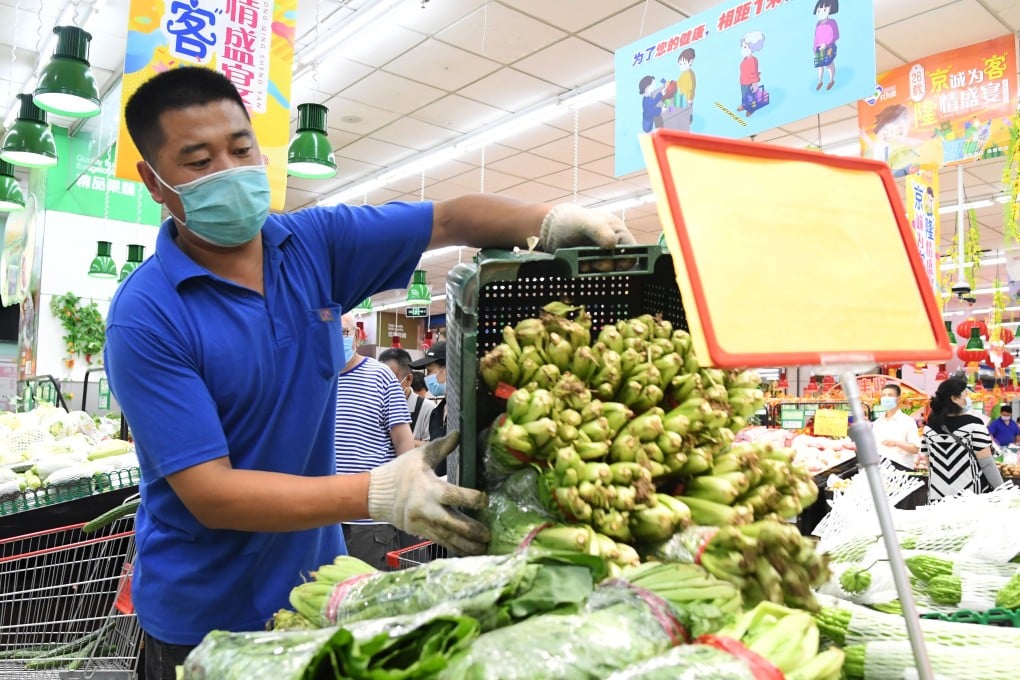Coronavirus: food-related outbreaks raise flags about supply security
- In Europe, South America and the US, meat processing plants have been hotspots for the spread of the virus
- Many workers at meatpacking plants and slaughterhouses in the US and China are from marginalised populations, academic says

Beijing has deployed emergency reserve food supplies and set up temporary markets to stave off shortages, state media reported. As of Monday, more than 230 people in the city had been infected, including a number of market workers.
In Europe, South America and the United States, meat processing plants have been hotspots for the spread of the virus, infecting thousands of workers and causing food security jitters.
Last week, a German meatpacking plant closed after nearly two-thirds of its more than 1,000 employees were found to be infected, while a poultry plant in Wales was closed after more than 50 workers fell ill. In the US, dozens of deaths have been linked to outbreaks at meat plants in recent months, according to Reuters.
As the pandemic infection rate shows no sign of slowing, experts say protecting workers and the global food supply requires an urgent broad approach to ensure workers’ rights and health are protected, facilities are sanitary and government support is in place.